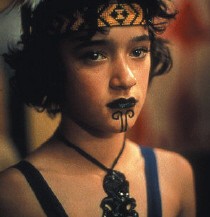Digital Collections
Celebrating the breadth and depth of Hawaiian knowledge. Amplifying Pacific voices of resiliency and hope. Recording the wisdom of past and present to help shape our future.
Kīhei de Silva
Why read the book when you’ve already seen the movie more times than you’re willing to admit and don’t want anything to take away from the empowerment that the on-screen rendering of Paikea’s triumph delivers each time, undiminished and transcendent?
Because the book is Witi Ihimaera’s. He is the first published Maori novelist, and Whale Rider provides a reader-friendly introduction to his more controversial work and lifestyle. Because the novel asks us, ko Hawaiʻi ponoʻī, “Where are your short-story writers, your novelists, your movies?”
Because much of the novel is narrated by Rawiri Apirana, the movie’s wayward uncle, whose character development is considerably deeper (and more political) than that afforded by Nikki Carro’s screenplay.
Because the novel provides us with other intriguing shifts of perspective: particularly in the characterization of Koro (even more intransigent), Porourangi (almost absent), and Paikea/Kahu (more an instrument of destiny). Our double perspective contributes to the mythic quality of the story into which Ihimaera originally tapped; they attest to the existence of this story as independent of novel and movie. The two versions, when considered in tandem, become compelling but imperfect metaphors of something more.
Because the novel unfolds in Maori fashion. Time is less lineal. Words are more powerful. There is room for poetry, oratory, and the coming-to-fruition of an ancient prayer. What we struggle to understand in the opening moments of the movie is here in print for us to contemplate and revisit; it runs for five pages and comes almost to a close with: “Let this spear be planted in the years to come, for there are sufficient spears already implanted. Let this be the one to flower when the people are troubled and it is most needed.”
Because the novel establishes a powerful connection between the ancient whale and his two riders: his “golden master” Paikea and his master’s many times removed great-granddaughter who whispers on the beach at death’s very door: “Ko Kahutia Te Rangi au. Ko Paikea.” I am Kahutia Te Rangi. I am Paikea. “And the whale felt a surge of gladness that as it mounted became ripples of ecstasy, ever increasing. He began to communicate his joy to all parts of his body. Out beyond the breakwater, the herd suddenly became alert. With hope rising, they began to sing their encouragement to their leader.”
Because there is as much chicken-skin in the reading as there is in the viewing.

Keisha Castle-Hughs